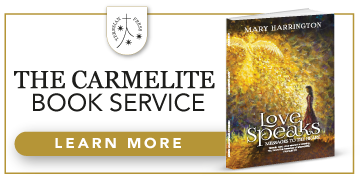Sorry, no records were found. Please adjust your search criteria and try again.
Sorry, unable to load the Maps API.
When Pope Francis made an apostolic visit to Poland for World Youth Day 2016, he made a particular point of paying a visit to the site of the Auschwitz-Birkenau Nazi death camp in Oswiecim. Today it is a chilling but quiet landscape of green fields and empty barracks but in 1942 it was the site of the mass extermination of more than one million Jews, 23,000 Roma, 15,000 Soviet prisoners and many thousands of other nationalities and groups that the Nazis wished to eradicate from the face of the earth.
During his visit, Pope Francis made his way towards a small, dark prison cell in the barracks of Block 11, a place of unspeakable horrors where prisoners were tortured mercilessly and subject to all kinds of obscene experimentation. A single small candle illuminated the figure of the pontiff as he prayed, the flickering light revealing numerous names and messages – and even a cross – scratched into the walls.
It was in this dark, oppressive room that a Polish Conventual Franciscan friar spent his final miserable hours before being given a lethal injection of carbolic acid on this day in 1941. His remains were cremated the following day, 15th August, the feast day of the Assumption of Mary.
Later canonised by St John Paul II in 1982, Maximilian Kolbe’s story is one of exceptional heroic virtue and his life and path to canonisation is in many respects a lodestar for the troubles times through which we are currently living. Most of us will be familiar with the key episode from his life – in late July 1941, in response to a prisoner escaping, the deputy camp commander picked ten men at random to be starved to death as a deterrent to further escape attempts. When one of the selected men, Franciszek Gajowniczek, cried out, “My wife! My children!” Kolbe volunteered to take his place – giving literal voice to words of the Gospel of John that “No one has greater love than this, to lay down one’s life for one’s friends.” (John 15:13)
The cause for Kolbe’s beatification was opened on 3rd June 1952 but the manner of his death led to some debate about his qualification for sainthood as, at the time, martyrdom carried a narrow definition that death must have been the result of a “hatred of the faith”. In Kolbe’s case some theologians argued that Kolbe had not been ‘selected’ for death at all and was not the object of any particular animosity towards his Catholicism, rather he had ‘volunteered’ to surrender his life. These doubts were resolved on 10th October 1982 when Saint John Paul II canonised Kolbe and – in a specific reference to the martyrdom debate – declared Maximilion a ‘martyr of charity’.
Present at the canonisation ceremony was Franciszek Gajowniczek, the man whose life he had saved. Gajowniczek was a Polish army sergeant who had been sent to Auschwitz concentration camp after being captured while crossing the border into Slovakia during the 1939 invasion of Poland by Nazi Germany. Born and brought up a Catholic, he survived the war and afterward became a lay missionary, dedicating his life to spreading the story of Kolbe’s sacrifice.
What makes this story so poignant and significant is that Kolbe didn’t know Gajowniczek, he was simply a fellow human being begging for his life to be saved and Kolbe’s actions not only saved him, but also led Kolbe into the starvation bunker where he could minister to and accompany the nine other innocent prisoners through their final, dark hours. This was no random or impulsive act, it was the consequence of his entire life as a priest who had daily commemorated the sacrifice of Jesus at Mass. As he said quite simply to the head SS officer at that decisive moment when asked why he wished to replace Gajowniczek: “I am a Catholic priest.”
Saint John Paul II often referred to Maximilian Kolbe as the ‘patron of our difficult century’, no doubt because he saw in Kolbe’s sacrifice the very relevant message that even in the most extreme and negative of circumstances, the God-created human person is still capable of holding to their dignity, and making free choices for the greater good of humanity.
As we wearily and destructively blunder our way through the first half of the 21st century, Kolbe’s sacrifice seems more relevant than ever. Every day our news bulletins are full of the terror and destruction that global powers seem incapable of relinquishing but, for every state-driven atrocity we have to witness, there are stories of the remarkable dignity and resilience of the ordinary human person. So much of this misery could be avoided so easily if only humanity could be persuaded to demonstrate the kind of love for one’s neighbour that defined Kolbe’s life and ultimate death.
“The most deadly poison of our time is indifference,” Kolbe once said, and warned that “hate is not creative. Only love is creative.” Looking at the many events that have unfolded in the news media in recent months and weeks one can’t help but be struck by the interplay of hate, indifference and absence of love that lies at the heart of so much destruction and misery in contemporary society. One could also point to an equally destructive preoccupation with the kind of relativism that puts the wants and demands of the individual ahead of the greater good of society; we have reduced ourselves to a new primitivism where we no longer seem to be equal members of human society but rather just a confused collection of competing, and mutually antagonistic and destructive, individuals.
The horrendous chapter in human history that was the Nazi death camps may have been consigned to the narrative archive of history, but the human species is still sadly more than capable of unspeakable atrocities, and of the kind of mutual destruction that appalled Kolbe. Even at a more domestic and menial level the recent UK riots demonstrate starkly that the human family is still at war with itself, and generally incapable of settling even the most menial of its differences.
When Kolbe was arrested in 1941 he was charged with housing, feeding and clothing Jewish refugees. “We must do everything in our power to help these unfortunate people who have been driven from their homes and deprived of even the most basic necessities,” he had once told his fellow friars. “Our mission is among them in the days that lie ahead.”
In Auschwitz Maximillian was beaten regularly by the guards and was given the most humiliating jobs, such as carrying dead bodies to the crematorium, but he never relented in his determination to demonstrate the positive effects of God’s love. Even the most dreadful of circumstances he remained charitable and offered to hear the confessions of other prisoners and talk to them, regardless of who they were or what their background was. Showing and holding to such an example of Christian witness in the midst of a genocide not only demonstrates the heroic virtue of Kolbe, but his life and final days offers a profoundly relevant message to those who would claim to be trying to resolve the many humanitarian catastrophes that are blighting the world today.
Across his lengthy and difficult life “Only love creates” was the phrase that Maximilian Koble repeated to all those who approached him.
As St John Paul II once commented: “This is the expression which, like a lamp, illumines his whole life. It was this superior ideal, this essential duty of every true Christian, that enabled him to overcome the cruelty and violence of his tremendous ordeal by the splendid testimony of his brotherly love and his forgiveness of his persecutors.”
In seeking to resolve the political and military crises that are threatening to overwhelm the modern world, there has been so much talk about finding the pathways to peace, of negotiated settlements and the pursuit of meaningful dialogues, but there has been very little mention of love and the unconditional concern for one’s fellow human beings. It was this deficit that led the world to the extermination camps of 1941 and, if we cannot somehow find a way to love and respect those with whom we seem to have such irreconcilable differences, I fear we may be condemned to repeat endlessly the terrible failings of history.
Joseph Kelly is a Catholic writer and theologian
































